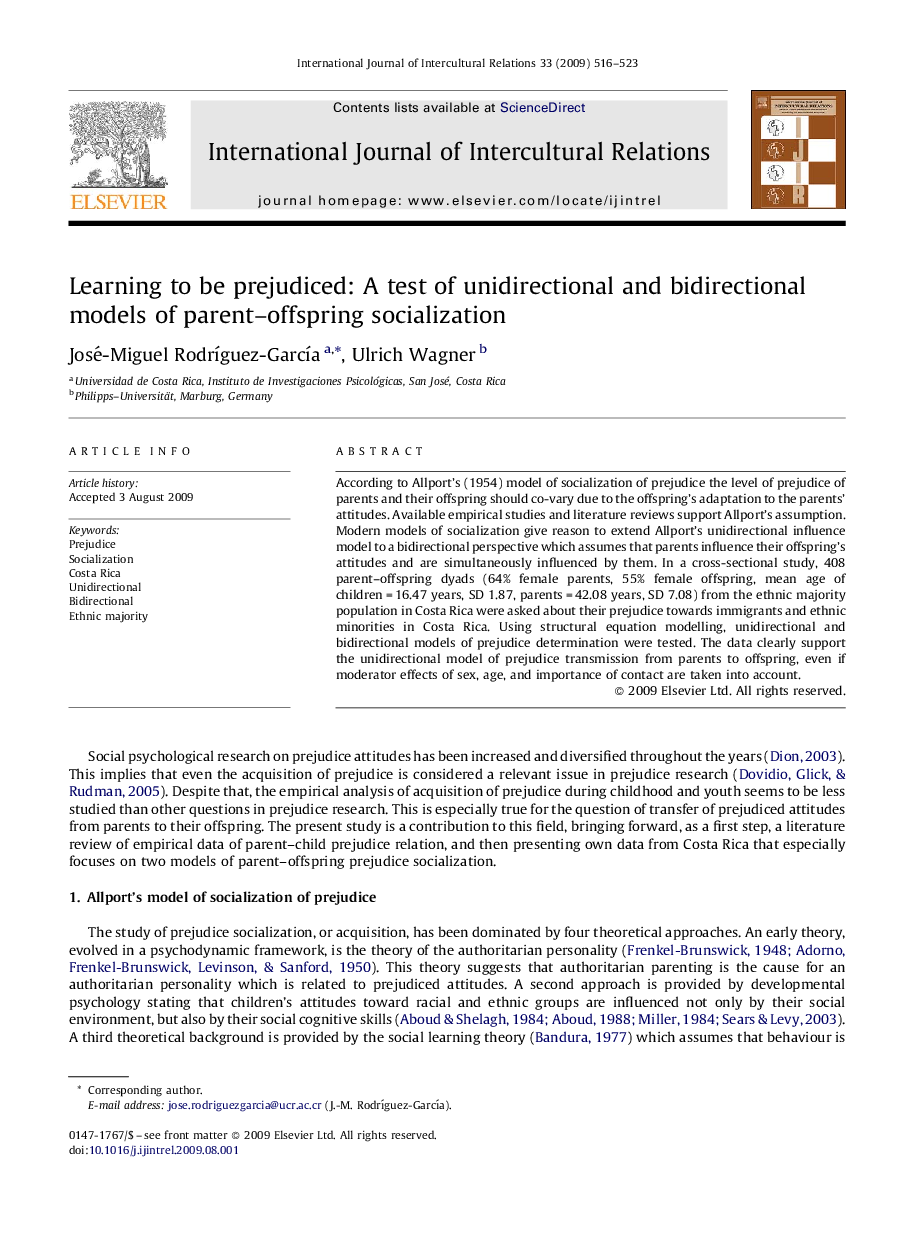| Article ID | Journal | Published Year | Pages | File Type |
|---|---|---|---|---|
| 947403 | International Journal of Intercultural Relations | 2009 | 8 Pages |
According to Allport's (1954) model of socialization of prejudice the level of prejudice of parents and their offspring should co-vary due to the offspring's adaptation to the parents’ attitudes. Available empirical studies and literature reviews support Allport's assumption. Modern models of socialization give reason to extend Allport's unidirectional influence model to a bidirectional perspective which assumes that parents influence their offspring's attitudes and are simultaneously influenced by them. In a cross-sectional study, 408 parent–offspring dyads (64% female parents, 55% female offspring, mean age of children = 16.47 years, SD 1.87, parents = 42.08 years, SD 7.08) from the ethnic majority population in Costa Rica were asked about their prejudice towards immigrants and ethnic minorities in Costa Rica. Using structural equation modelling, unidirectional and bidirectional models of prejudice determination were tested. The data clearly support the unidirectional model of prejudice transmission from parents to offspring, even if moderator effects of sex, age, and importance of contact are taken into account.
